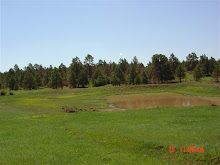[San Miguel] County changes panel after criticism
By David Giuliani, Las Vegas Optic
The San Miguel County Commission this week decided to change the composition of its oil gas task force after some contended that it was heavily weighted toward the industry.
County officials said they wanted to change the makeup of the 10-member task force after they received disclosure forms from applicants.
In April, the commission formed the task force to make recommendations for an ordinance that would deal specifically with oil and gas drilling. No requests for drilling are pending, but there are some in neighboring counties.
Industry opponents said last month that one of the members, Jeffrey Mills of the Environment Department, shouldn’t be classified as representing environmental concerns. Mills spent years discovering oil in the Gulf of Mexico and is a beneficiary of oil and gas royalties in Texas and Louisiana.
Mills, who maintains that he has no oil and gas interests in New Mexico, has been reclassified as an industry representative, taking the place of John Michael Richardson of Petroleum and Mineral Land Services, who is no longer on the task force.
Kim Kirkpatrick, a retired Highlands University professor, is taking Mills’ spot as one of the two environmental representatives.
Pat Leahan of the Las Vegas Peace and Justice Center, who had criticized the task force’s composition, is now one of three citizen representatives on the panel, replacing David Blagg, a former general contractor from Sapello, who is no longer listed as a member.
Blagg said he hadn’t been able to get an answer about why he was removed from the panel. He speculated that he may have been nixed because he has investments in mutual funds with some ties to oil and gas. But he said those investments don’t amount to much.
Blagg said he wanted to be on the task force because he is concerned about oil and gas leases through the Santa Fe Opera on land near his Sapello property.
“I probably would have been the most conservation-minded of people on the task force. I really want there to be strict and serious encumbering limitations (on oil and gas), especially with bonding,” he said, adding that he was disappointed he didn’t make the task force.
Leahan said in an e-mail to county officials this week that she, too, was disappointed that Blagg couldn’t remain on the panel. She said he could bring valuable acequia experience to the table.
Alex Tafoya, the county’s planning and zoning supervisor, said the changes were made to balance the task force.
Leahan said she was pleased with the panel’s reshaping.
“We should also be mindful as we move forward that a wider range of local voices needs to be heard — not just heard, but honored,” she said in an e-mail. “Those who have worked for generations to protect the land, water, culture and way of life for the people of this region must play a key role in shaping what happens next regarding the oil and gas industry in San Miguel County.”
She urged the county to keep the task force “open and transparent.”
During this week’s commission meeting, Commissioner Nicolas Leger said he believed the task force was balanced. But he said he was sure that some people would differ with that conclusion.
members of task force
Oil industry
• Karin Foster, Independent Petroleum Association of New Mexico
• Jeffrey Mills, Las Vegas resident with oil and gas royalties
Environmental and educational
• Kim Kirkpatrick, retired Highlands University professor
• Ken Bentson, Highlands University forestry professor
Citizens
• Pat Leahan, Las Vegas Peace and Justice Center
• Ernesto Borunda, retired, Sapello
• Larry Webb, Newkirk, N.M.
County representatives
• Nicolas Leger, county commissioner
• Les Montoya, county manager
• Alex Tafoya, planning and zoning supervisor
Visit the Las Vegas Optic>>>





